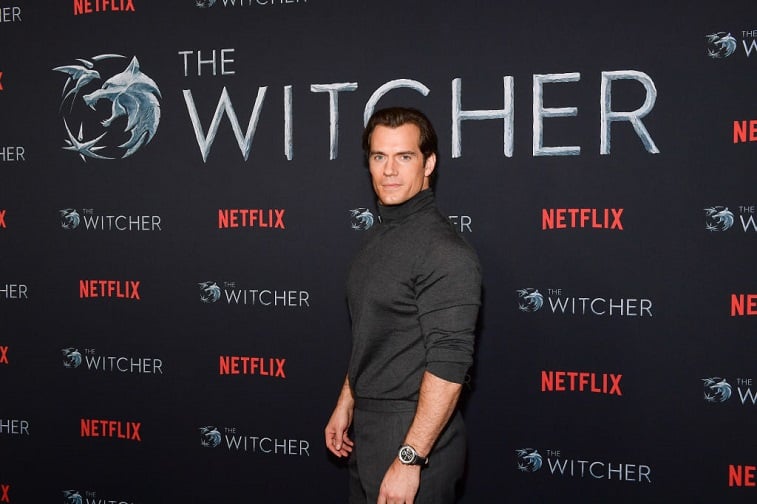‘The Witcher’ Season 1: What Is the Law of Surprise?
The Netflix series The Witcher has taken over since its release and fans have a lot of questions. A big one revolves around what the Law of Surprise really is. Read on to find out. There are spoilers ahead for season 1 of The Witcher.
Viewers are introduced to the Law of Surprise in episode 4

In the hit show, viewers may notice some references to mythology and folk history of the Polish and Slavic variety. Some fans are seriously confused after encountering the Law of Surprise in episode 4 called “Of Banquets, Bastards and Burials.” It’s briefly described as a form of repayment.
The Law of Surprise is a major point in the world of The Witcher. It’s given when someone will do anything to offer another person thanks. The person who is owed can then claim, “that which you possess, but do not yet know.”
Duny claims the Law of Surprise
Fans of The Witcher are first shown the custom when a knight, who is covered with a helmet, comes to Princess Pavetta’s (Gaia Mondadori) banquet betrothal competition. The knight, named Duny (Bart Edwards), boldly asks for her hand in marriage and claims to have saved King Roegner’s life. The King decided to grant Duny whatever he wanted, and he chose the Law of Surprise. “By tradition, I chose the Law of Surprise as payment,” Duny says. “Whatever windfall he came home to find would be mine.”
The king came home to a pregnant wife, who gave birth to Pavetta. Duny, being the kind of man he is, never meant to take Pavetta as his own, but they end up falling in love anyway. They both want to marry and the Law of Surprise just so happens to coincide with their wishes. Destiny seems to have taken over.
‘It’s an honest gamble’
Eist (Björn Hlynur Haraldsson), who ends up being Queen Calanthe’s future husband, explains the situation this way: “’Tis no swindle. Asking for payment with the Law of Surprise is as old as mankind itself… it’s an honest gamble. As likely to be rewarded with a bumper crop as a newborn pup. Or a child of surprise. He could not know. Destiny has determined the surprise be Pavetta… Who are we to challenge destiny?”
Geralt of Rivia gets involved
In the end, the Law of Surprise gets its due and Duny and Pavetta are able to be together and marry, but not before some other shocking details come to light. Duny is cursed and Queen Calanthe (Jodhi May) initially tries to kill Duny and an epic battle takes place. Geralt of Rivia (Henry Cavill) ends up defending Duny and he chooses to be repaid by Duny in the same way.
The curse on Duny is lifted once Queen Calanthe accepts the situation and grants them to be married. Geralt’s epic choice to be repaid in a similar fashion is revealed when Pavetta gets sick and it’s obvious that she’s pregnant with Ciri (Freya Allan). Geralt’s choice binds him to Ciri forever, which plays out further in the season.
Geralt saves Duny and it changes his life forever
So why does Geralt invoke a similar request from Duny after saving his life? A Reddit user explains that Geralt doesn’t actually care about getting paid in return, but things change for him forever after saving Duny.
“In the show, Geralt does not believe in destiny and invokes it as an ‘I owe you’ since Duny insists he’d give him anything for saving him, but Geralt doesn’t care about getting repaid,” a Reddit user explains. “When Pavetta surprises Duny by being pregnant, everyone at the banquet immediately thinks destiny intervened, and that Geralt just pulled a **** move by claiming their unborn child.”
Hopefully, the Law of Surprise is slightly less confusing for viewers of The Witcher going forward.


